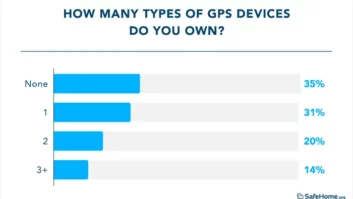London — Alternative location technologies such as Wi-Fi and Cell-ID will increasingly join GPS in new location-based service (LBS) applications in cellphones and other handheld devices, ABI Research concluded in a new report.
The other technologies are useful in urban and indoor environments where GPS suffers from reduced accuracy, long fix times or an outright failure; LBS applications include social networking, local search, advertising and geo-tagging.
“Users expect a seamless and transparent location experience regardless of application or environment,” said ABI director Dominique Bonte. “Since no single positioning technology can provide this, the future will be about hybrid positioning systems, combining assisted-GPS, Cell-ID, Wi-Fi, cellular, motion sensors, and even TV broadcast and proximity technologies such as Bluetooth, NFC and RFID.”
Assisted-GPS, Wi-Fi and Cell-ID, however, will be the “winning combination” because combined they offer accuracy, availability, interoperability and short fix times at low cost. The combination will represent 25 percent of all positioning solutions by 2014, ABI said. Stand-alone Cell-ID with and without Wi-Fi will remain important in areas with low penetration rates of GPS-equipped handsets, the company said.
The licensing of Skyhook Wireless’ Wi-Fi positioning to GPS-chipset vendors Broadcom, Qualcomm, SiRF and CSR will contribute to widespread availability, ABI continued. Likewise, Sprint’s recent decision to let third-party developers access the carrier’s network-based location platform via location aggregators “will stimulate the use of hybrid positioning,” ABI said. Such aggregators include Wavemarket, Loc-Aid and uLocate.
Major companies such as Google are also building their own databases of cell-tower and/or Wi-Fi hot-spot locations, allowing them to offer LBS services independent of carriers, ABI noted. “More importantly, it is likely they will make their location assets available to smaller vendors, further endangering the position of the carriers.”
The report is one of multiple reports available through ABI’s Location Aware Services Research Service.













